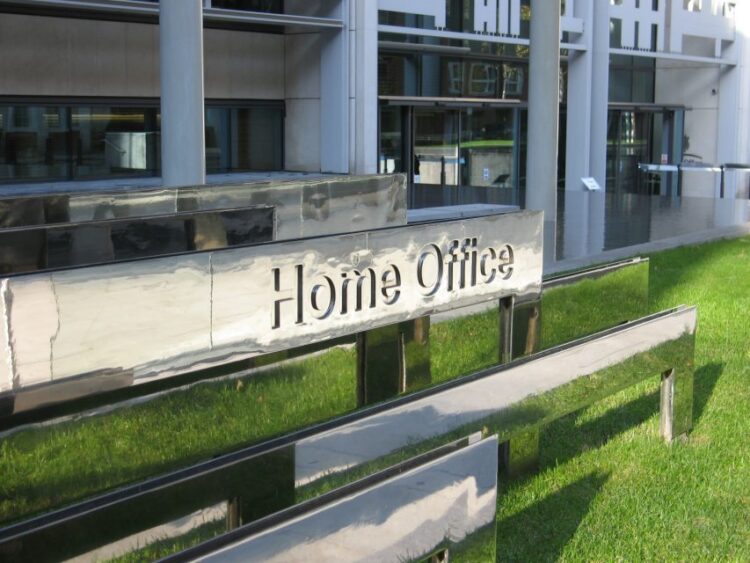By Gavin Mackintosh-
The Home Office seriously should have intervened in approving funding for the SDS unit over and over again, and continued to sign off funding despite having limited information about it use. The Report notes common threads in the various memos supporting applications for continued Home Office approval
Documentary evidence of which documents were sent to the Home Office, or read by James Waddell or other senior official is sparse because the Home Office file that would have contained all retained documents about the SOS, QPE/66 1/8/5, is inexplicably “missing”. [C2,§12]
A search of all Home Office archives failed to find a single document relating to the SDS, despite the Home Office directly funding it for over 20 years.
However, the Metropolitan Police kept some copies.
The report concluded that it is inconceivable that James Waddell – the Deputy Under Secretary with responsibility for policing from 1968 to 1975 – was not aware, throughout, of the general nature of the activities undertaken by the SDS. [C2,§12]
The Report notes that contemporaneous documents suggest that the Home Office took little, if any, interest in the activities of the SDS after 1977 and received little information about them. However, letters seeking annual renewal of funding were still sent by the Assistant Commissioner (Crime) to the Deputy Under Secretary, and the Home Office continued to sign off on funding despite this apparent lack of information.
The involvement of senior members of the Metropolitan Police Force is vital in formulating and implementing comprehensive ethical guidelines for undercover operations. These guidelines ought to have explicitly addressed the issue of intimate relationships, explicitly prohibiting officers from engaging in such relationships while undercover.
Additionally, the use of deceased children’s identities should have been explicitly condemned, recognizing the distress it causes to the bereaved families. Senior officials should ensure that such guidelines are regularly reviewed, updated, and effectively communicated to all officers involved in undercover work.
Senior officials were expected to institute robust oversight mechanisms to monitor the conduct of undercover officers. Regular reviews, independent audits, and internal inspections can provide crucial checks and balances to prevent misconduct and promote transparency.
Additionally, the introduction of mandatory reporting mechanisms for officers who witnessed or suspected misconduct can help uncover and address such issues promptly.
Senior officials should prioritize the development and implementation of specialized training programs for undercover officers.
Breach Of Ethical Standards
The misconduct of SDS officers, involving sexual relationships while undercover and the use of dead children’s identities, constitutes a serious breach of professional and ethical standards.
The intervention of senior members of the Met and the Home Office is essential to prevent such misconduct, preserve public trust, and reinforce the integrity of the undercover policing system.
The force insists it has moved on since then, although it remains tarnished by multiple accounts of misconduct and criminal activities in the past few years.
The unethical form of undercover operation is believed to have changed, but accountability, strengthening ethical guidelines, promoting transparency and oversight, implementing comprehensive training programs, and engaging with stakeholders, senior officials can establish a more ethical and effective undercover policing framework.
The report acknowledges that some officers did important work, at personal risk, to gather intelligence to prevent future disorder.
The Chairman of the Inquiry found that in this period, “the great majority of deployed undercover officers and their operational managers performed their duties conscientiously and in the belief that what they were doing was lawful and in the interests of the public.”
However, the report also details unacceptable and immoral behaviour by some undercover officers during this period.
Commander Jon Savell said: “We know that enormous distress has been caused, and I want to take this opportunity to reiterate the apologies made to women deceived by officers into sexual relationships, to the families of deceased children whose identities were used by officers, and to those who suffered a miscarriage of justice because of the actions of SDS officers.
“I want to reassure the public that undercover policing has undergone radical reform over the years, with greater regulation, professional codes of practice, and judicial oversight. The way in which undercover policing was conducted in the 1970s bears no relation to how it is conducted today.
“In today’s Met, we are setting clear expectations of all our people to create a Met Londoners can be proud of, and where damaging behaviour such as this is not tolerated.”
We are committed to working with the Inquiry to examine the conduct of our undercover officers throughout each stage of the Inquiry, and learning lessons from the findings.




